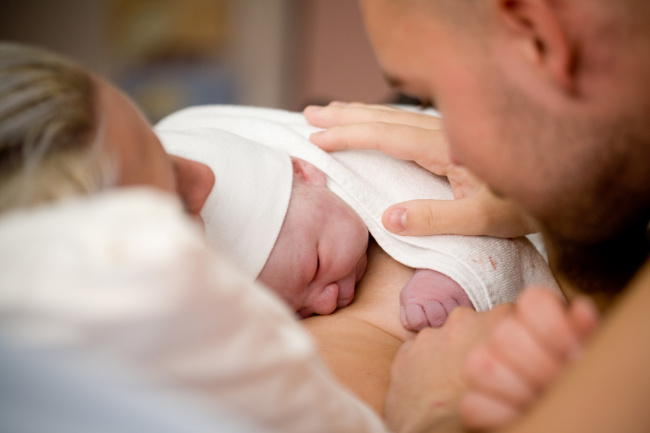The mother-baby friendly hospital initiative practiced in the government hospital setting consists of 10 steps that are essential in promoting and maintaining breastfeeding practices. Step seven of the 10 steps states the following: “Practice Rooming-in- allow mothers and babies to remain together 24 hours a day.” This means that routine separation should be avoided at all times unless there is a clinical need or procedure required.
Why is Rooming-in important?
A baby that is kept in close proximity to its mother often has better sleeping patterns and will cry less which has a calming effect on the mother.
Learning feeding cues and establishing a sleep/awake rhythm with the baby while still in the hospital is important for the going home period as the mother would have a better idea of what she needs to expect in the home environment. Learning these cues will ensure that the mother establishes optimal breastfeeding practices which in most cases will continue for longer periods of time and result in good weight gain and growth of the baby.
As I’ve mentioned in previous articles, babies need to be fed on demand (when they are hungry), and rooming-in supports this practice as the baby is easily accessible.
Rooming-in, as with skin-to-skin, allows a special bonding to occur between mother and baby during the first few days of life and this often gives first time mothers the confidence that they may initially lack. The anxiety that exists from being separated from the baby while in the hospital is completely removed which means that milk flow is not hindered in any way.
There will be times when it is not possible for mother and baby to be together 24 hours due to medical procedures, but this time period should be kept as short as possible. Rooming-in has so many great potential benefits to both mother and baby and should be insisted upon by every expectant mother whether she has chosen to breastfeed or not.
Laura May Janse Van Rensburg
Latest posts by Laura May Janse Van Rensburg (see all)
- The different types of breastmilk - November 6, 2014
- Rooming-in: How it assists breastfeeding - October 14, 2014
- Inform yourself: The importance of skin to skin - September 29, 2014
-
No Comments" href="https://all4baby.co.za/pregnancy/planning-for-baby/2754/working-baby-expo-circuit/">

Working the baby expo circuit
-
No Comments" href="https://all4baby.co.za/babies-6-12-months/health-hygiene-illness/2736/baby-gone-off-solid-foods/">

Why has my baby gone off solid foods?
-
No Comments" href="https://all4baby.co.za/toddlers-1-2-years/learning-development-1-2-years/2721/teach-toddler-new-concepts/">

How to teach your toddler new concepts
-
1 Comment" href="https://all4baby.co.za/babies-6-12-months/2711/secondhand-car-seats-biggest-mistakes-parents-make/">

Secondhand car seats: The biggest mistakes parents make


 Saving...
Saving...